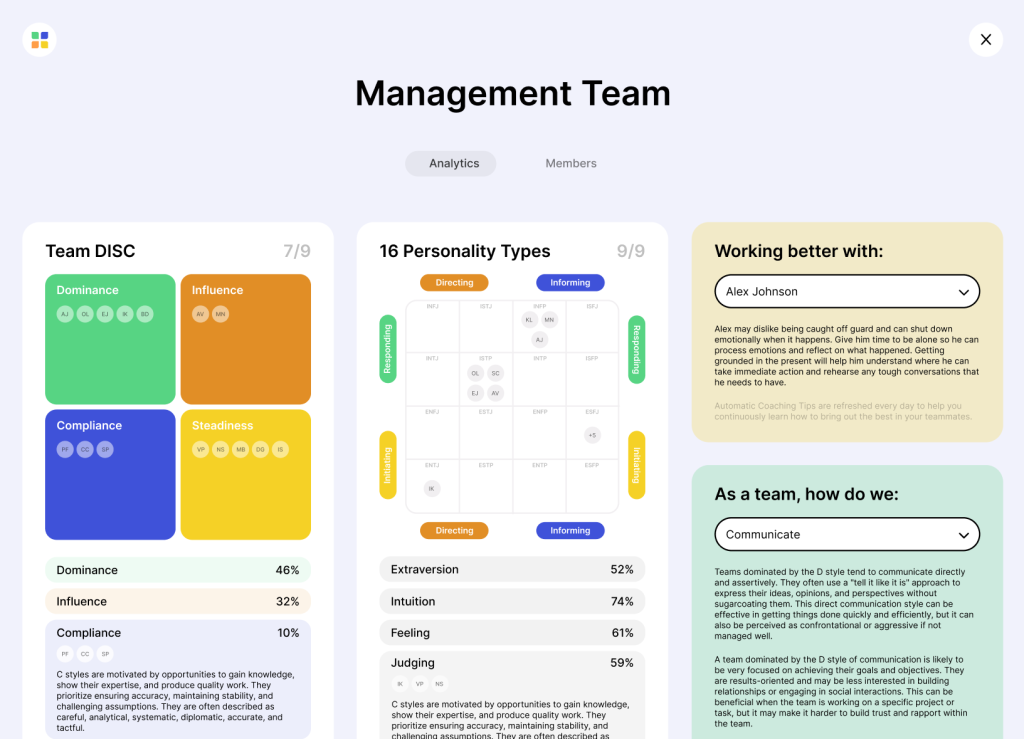Free Four Temperaments Test: Online Temperament Assessment
How Does Temperaments Test Work?
The Four Temperaments test is a personality assessment that assigns individuals to one of four temperament types: sanguine, choleric, melancholic, or phlegmatic. This test is based on the theory that each individual has a unique mix of these four temperaments that affects their behavior and how they interact with others.
To take the Four Temperaments Test, you’ll have to answer a series of questions about your personality and preferences. Based on your answers, you’ll be assigned a primary and secondary temperament type.
Why is Temperaments Test Important & Their Benefits
The Four Temperaments Test is important because it can help you understand your personality type. Once you know your temperament, you can use this information to make better decisions, communicate more effectively, and find a career that suits you best.
If you’re not sure which temperament you are in, many online quizzes can help you figure it out. However, it’s important to remember that these tests are not always accurate. Sometimes, the results of a test can be influenced by your mood or the way you answer the questions.
That being said, taking a temperament test can still be beneficial. It can give you a better understanding of yourself and help you see things from a different perspective.
List of Benefits When Taking a Temperaments Test
Understanding the benefits that come out of taking a temperaments test can be very helpful in deciding to take the test. Many people are not aware of what they can gain from taking such a test, but once they see the benefits, they may be more willing to give it a try.
These are some of the common benefits of this type of test:
- Understanding your strengths and weaknesses
- Improved communication with others
- Greater self-awareness
- Increased ability to relate to others
- Enhanced problem-solving skills
- Greater insight into your motivation
- Better career planning
- Improved relationships
- Greater personal satisfaction
- A deeper understanding of yourself and others
For Whom Is Temperaments Test Assessment?
This assessment is best for those individuals that want to learn more about their personality and how it affects their behavior. The test can also be used in organizational settings to help groups better understand each other and work together more effectively.
That said, consider that the temperaments test is not a measure of intelligence or aptitude. It should not be used to make decisions about hiring, promotions, or other personnel matters.
How Long Does The Temperaments Assessment Test Last?
The temperament assessment test usually lasts around 15 minutes. This short amount of time is necessary to get an accurate result.
While this may vary depending on how many questions are asked, the average person can expect to answer these questions in about a quarter of an hour.
How Accurate Is a Temperament Test?
The accuracy of a temperament test can vary depending on the type of test you take. If you take a self-reported test, the results may be less accurate than if you take a test administered by a professional.
However, self-reported tests can still give you a general idea of your personality type.
Four Temperaments Test FAQ
What is the rarest temperament type?
There is no definitive answer to this question as different temperament tests may produce different results. However, based on the results of various tests, it is believed that the rarest temperament type is the phlegmatic temperament. This type is characterized by being calm, cool, and collected. Phlegmatics make up only a small percentage of the population, and as such, they are often considered to be the “odd ones out”.
What are temperament tests?
Temperament tests are used to assess an individual’s personality traits and how they interact with others. These tests can be useful in helping people to better understand themselves and their relationships.
What are the 4 types of temperaments test?
The four most common types of temperament tests are the sanguine, choleric, melancholic, and phlegmatic temperaments. Each of these temperament types has its own unique set of personality traits. Sanguine temperament types are typically outgoing and social. Choleric temperament types tend to be more assertive and task-oriented. Melancholic temperament types are usually introspective and thoughtful. Phlegmatic temperament types are typically calm and easygoing.
Help your team members work better together by creating an integrated analysis of all your team personality types
Disclaimer: All trademarks mentioned on this page or any other page on the BestPersonalityTests.com website are the property of their respective owners. The information as well as sample tests on this page or any other page on the BestPersonalityTests.com website are provided for informational and illustrative purposes only. They are not meant as substitutes for the original assessments and do not intend to diminish the value of the mentioned companies or their services. The editorial team strives to be accurate in the information presented and to keep it as up-to-date as possible, however, it is possible that some of it is outdated. In such cases, please contact the editorial team with suggested updates or corrections.

